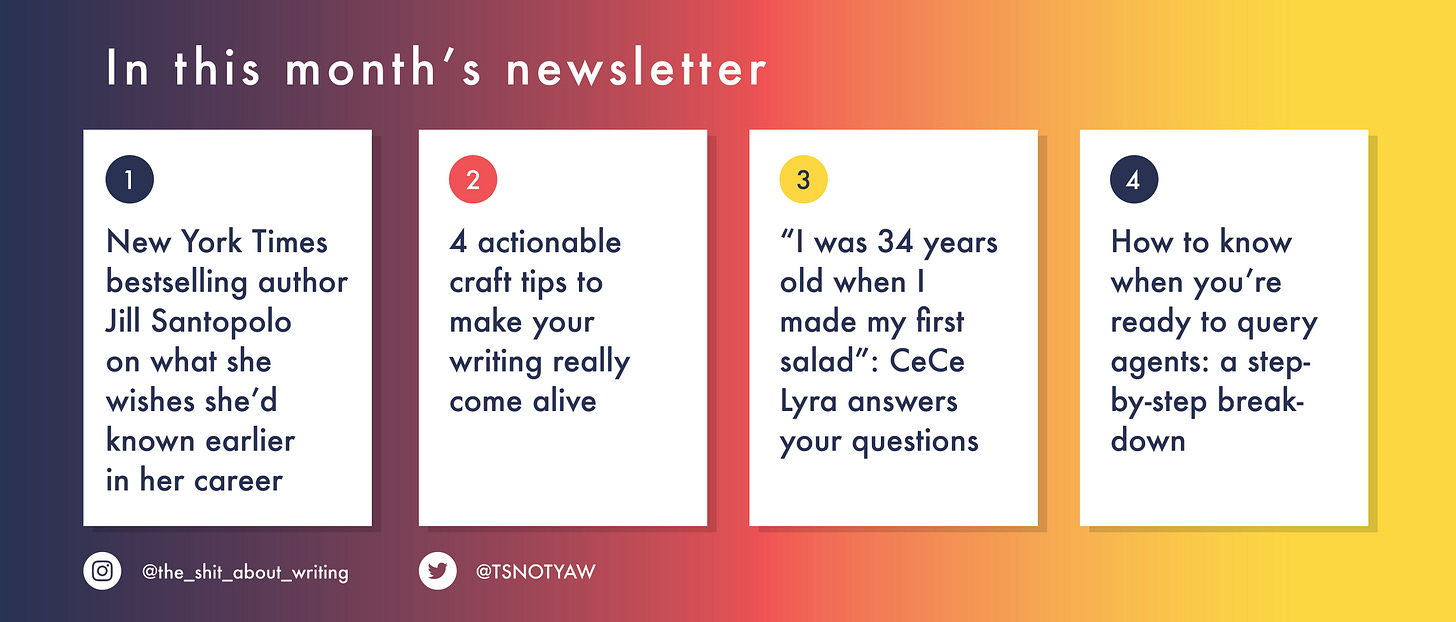Four actionable writing tips, advice from a NYT-bestselling author + we answer your burning questions!
✨Plus, a step-by-step guide to figuring out when your manuscript is ready to query✨
Welcome to our March Issue! We are so glad you’re here and have loads of goodies in store. But first: we hope you will take a moment to appreciate yourself. Being a writer takes guts and a lot of persistence. As any writer manically cleaning out the fridge or staring into the middle distance will tell you: writing is only one part of being a writer. Day…
Keep reading with a 7-day free trial
Subscribe to The Shit No One Tells You About Writing to keep reading this post and get 7 days of free access to the full post archives.




